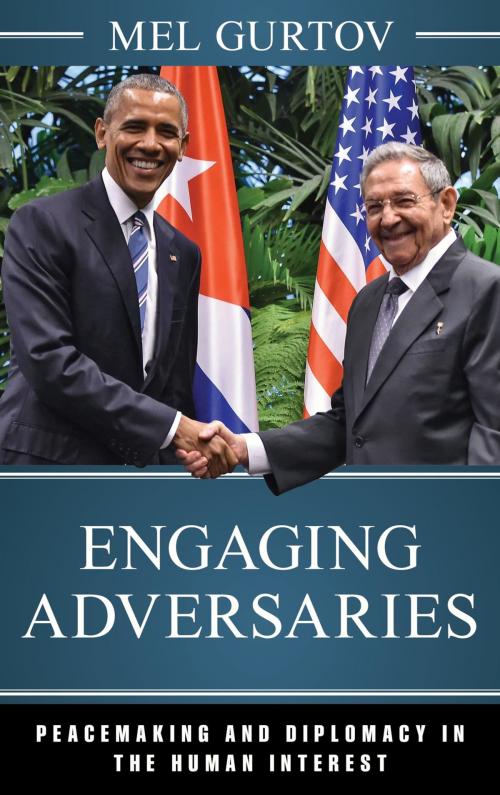Engaging Adversaries
Peacemaking and Diplomacy in the Human Interest
Nonfiction, Social & Cultural Studies, Political Science, International, International Relations| Author: | Mel Gurtov | ISBN: | 9781538111147 |
| Publisher: | Rowman & Littlefield Publishers | Publication: | January 26, 2018 |
| Imprint: | Rowman & Littlefield Publishers | Language: | English |
| Author: | Mel Gurtov |
| ISBN: | 9781538111147 |
| Publisher: | Rowman & Littlefield Publishers |
| Publication: | January 26, 2018 |
| Imprint: | Rowman & Littlefield Publishers |
| Language: | English |
This groundbreaking book explores how adversaries in world politics can surmount their differences and disputes and start on the path to peaceful, mutually productive relations. Writing with authority and clarity, Mel Gurtov defines the strategy of deep engagement, examines how it progressed under President Obama with Cuba and Iran, and probes its potential for US–Russian and US–North Korean relations and other critical hotspots. At the core of the book are case studies that highlight the strategy and practice of engagement in both successful and failed efforts. Showing that domestic political obstacles turn out to be more formidable than strategic interests when national leaders seek to engage adversaries, Gurtov draws lessons for diplomacy in ways to engage, such as practicing mutual respect, paying attention to symbols, and using incentives rather than sanctions. At a time when use of force remains the main way governments pursue their interests, Engaging Adversaries is a timely appeal to diplomacy and a reminder that a multitude of ways exist for adversaries to find common ground.
This groundbreaking book explores how adversaries in world politics can surmount their differences and disputes and start on the path to peaceful, mutually productive relations. Writing with authority and clarity, Mel Gurtov defines the strategy of deep engagement, examines how it progressed under President Obama with Cuba and Iran, and probes its potential for US–Russian and US–North Korean relations and other critical hotspots. At the core of the book are case studies that highlight the strategy and practice of engagement in both successful and failed efforts. Showing that domestic political obstacles turn out to be more formidable than strategic interests when national leaders seek to engage adversaries, Gurtov draws lessons for diplomacy in ways to engage, such as practicing mutual respect, paying attention to symbols, and using incentives rather than sanctions. At a time when use of force remains the main way governments pursue their interests, Engaging Adversaries is a timely appeal to diplomacy and a reminder that a multitude of ways exist for adversaries to find common ground.















